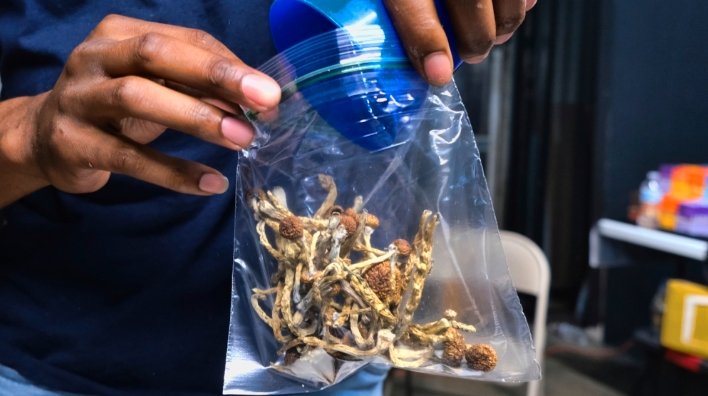A new bill would allow supervised use of psilocybin for medical, therapeutic, and spiritual purposes
The Massachusetts Joint Committee on Public Health has approved a bill that would legalize the use of psilocybin, the psychedelic compound found in magic mushrooms, for medical, therapeutic, and spiritual purposes. The bill, sponsored by Rep. Nicholas A. Boldyga ®, would create a licensing system for facilitators who would oversee psilocybin sessions and training schools for them. The bill would also allow adults 18 and older to use psilocybin during facilitated sessions, for various reasons.
The bill aims to address the mental health crisis in the state and the country, as psilocybin has shown promise in treating conditions such as depression, anxiety, PTSD, and addiction. Psilocybin is currently classified as a Schedule I drug by the federal government, meaning it has no accepted medical use and a high potential for abuse. However, several studies have demonstrated the safety and efficacy of psilocybin in controlled settings, with minimal adverse effects and lasting benefits.
The bill would make psilocybin therapy more accessible and affordable
One of the main features of the bill is the low licensing fee for facilitators, which would be $155 for two years. This is significantly lower than the fees in Oregon, the first state to legalize psilocybin therapy, where facilitators have to pay $5,000 for a two-year license. The high cost of licensing in Oregon has raised concerns about the accessibility and affordability of psilocybin therapy, especially for low-income and marginalized communities.

The bill would also waive the licensing fee for veterans, officers, EMTs, and paramedics, who may benefit from psilocybin therapy for their mental health issues. The bill would also require facilitators to complete between 20 and 300 hours of training from a licensed school, including at least 20 hours of in-person practice. The training requirements are similar to those of licensed counselors in the state.
The bill would also allow facilitators to possess up to five grams of psilocybin, excluding the water and fungi material that is part of the mushrooms. The bill would not legalize the cultivation, distribution, or sale of psilocybin, which would remain illegal under state and federal law.
The bill faces competition from a ballot initiative
The bill is not the only effort to legalize psilocybin therapy in Massachusetts. A group of advocates, called Bay Staters for Natural Medicine, has submitted signatures for a 2024 ballot initiative that would legalize psilocybin as a treatment for anxiety, depression, and PTSD. The initiative would create a Psilocybin Advisory Board to regulate the program and set standards for facilitators, who would have to undergo a background check and complete a training program.
The initiative would also allow adults 21 and older to grow, possess, and share psilocybin mushrooms for personal use, without any supervision or facilitation. The initiative would also expunge the criminal records of people who have been convicted of psilocybin-related offenses.
The group has expressed support for the bill, but also criticized the lack of public input and transparency in the legislative process. The group also argued that the bill does not go far enough in decriminalizing psilocybin and allowing personal use.
The bill and the initiative reflect the growing interest and momentum for psychedelic reform in the state and the country. Several cities, such as Denver, Oakland, and Somerville, have decriminalized the possession and use of psilocybin and other natural psychedelics. Several states, such as California, Florida, and Hawaii, are also considering similar measures.
Psilocybin therapy is seen by many as a promising and innovative way to address the mental health challenges that many people face, especially in the wake of the COVID-19 pandemic. Psilocybin therapy could offer a new hope and healing for those who suffer from mental illness and trauma.



